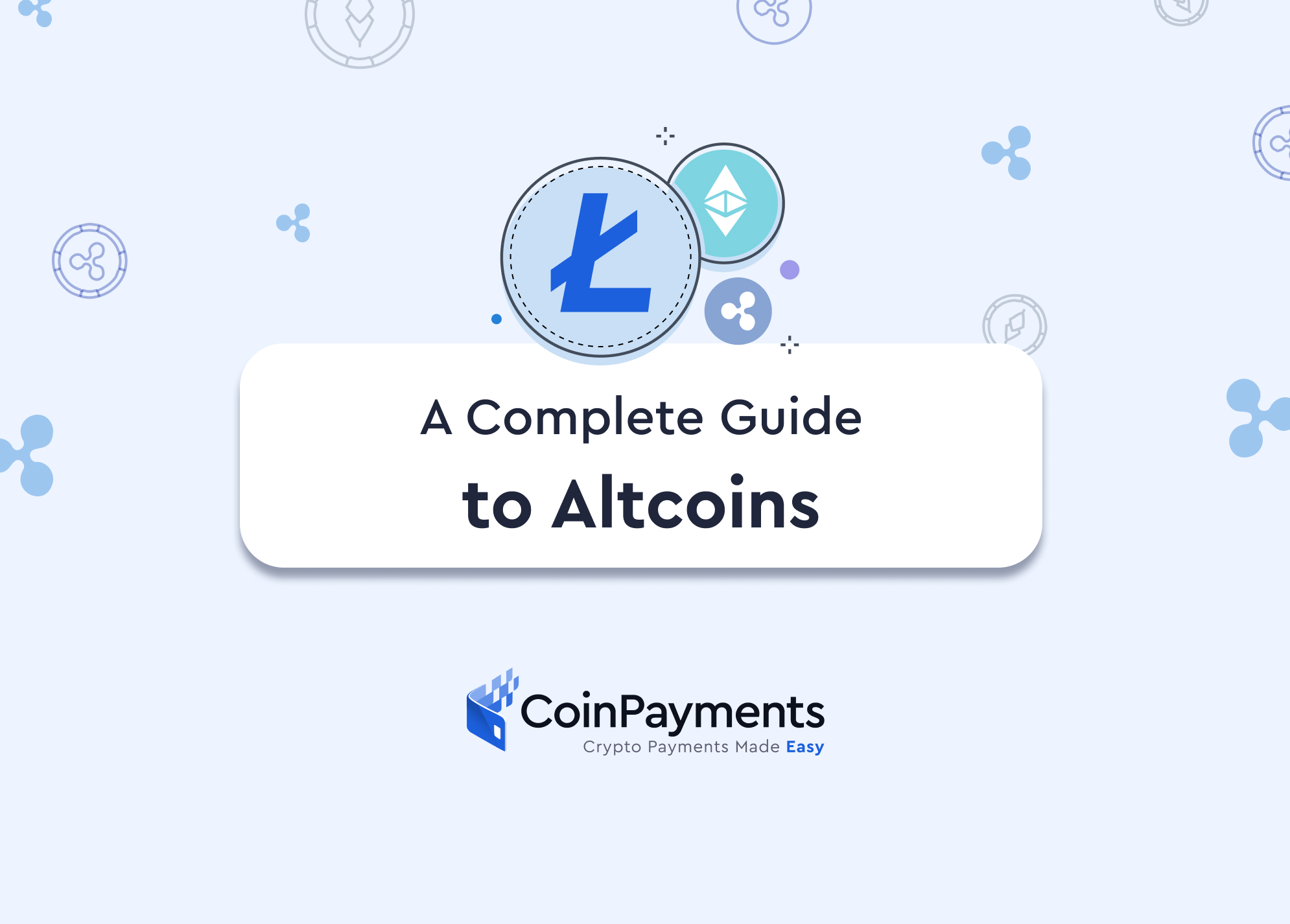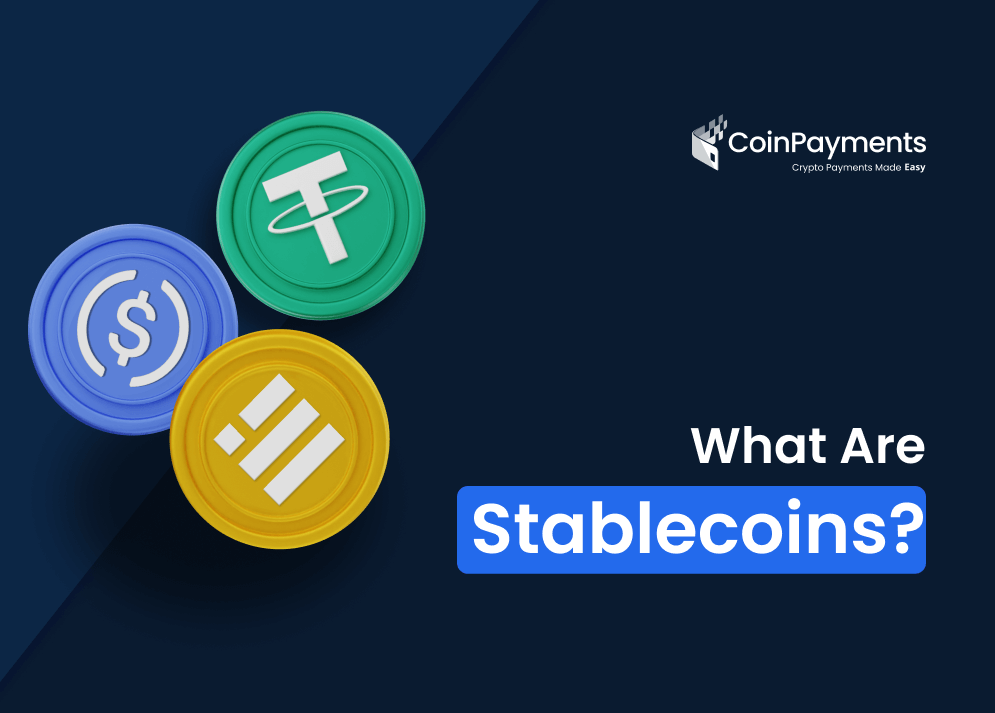
There’s Bitcoin, and then there are the thousands of other cryptocurrencies you might see when you check out cryptocurrency price charts. These “altcoins” can be difficult to understand if you’re not already familiar with crypto. It can be tough to know whether you should accept altcoins for purchases on your e-commerce store.
Today, let’s break down a complete guide to altcoins so you know what these cryptocurrencies are, how they work, and which tokens you might consider accepting as tender for your e-commerce business.
Altcoins Explained
Altcoins are defined in relation to Bitcoin, the original and most popular cryptocurrency payment method available today. Altcoins are a shortening of “alternative coins” and include any cryptocurrencies or virtual currency aside from Bitcoin itself. The first altcoins arose once various people discovered the limitations of Bitcoin, either in terms of its transaction processing speed, the number of coins that will eventually be minted, and so on.
Depending on the altcoin in question, some use different consensus algorithms (i.e., proof of work or proof of stake), different transaction processing speeds, better or worse scalability, varying distribution methods for the tokens themselves, and more.
Because it’s easy to create your own crypto token relative to other types of currencies, there are tens of thousands of altcoins available today. While this dilutes the market somewhat, the broader crypto market quickly identifies and adopts many of the best coins.
Where Did Altcoins Come From?
Technically, the history of altcoins begins with Bitcoin, as this most popular cryptocurrency first started its own network in 2009. The first official altcoin was dubbed “Namecoin” or NMC, and it launched in 2011.
The primary goal of this initial altcoin was to increase the rate of decentralization for online identities and to make censorship even harder to enforce alongside Bitcoin. As is the fate of most altcoins, NMC is now rarely traded and has minimal value.
Nonetheless, altcoins have continued to grow and spread over the last 10 years. By 2014, many popular altcoins were starting to reach values comparable to that of Bitcoin. Ripple, one of the altcoins broken down below, reached a market cap of well over $1.5 million in 2014. That same year, Peercoin reached a speculative market cap of $85 million, and Litecoin had a market value cap of $401 million.
These examples illustrate how altcoins became more popular over time as other inventors entered the crypto market and started to iterate upon the core idea that Bitcoin introduced.
Ultimately, altcoins are about improving or changing something about Bitcoin’s cryptocurrency process. They might use different types of blockchains or other systems entirely. Because of this, the crypto market truly is a “market of merit”; only the best altcoins last for long enough to get public attention, let alone reach high-value market caps.
Altcoin vs. Bitcoin
Notably, not every altcoin follows the same rules as Bitcoin. As an example, Bitcoins are only mined about once every 10 minutes. In contrast, Litecoin – one of the most popular altcoins – produces a new coin every 2.5 minutes or so. Litecoin’s blockchain and crypto network can process transactions a lot more quickly than Bitcoin.
There are other differences as well. For example, Bitcoin has a total cap of 21 million BTC. There will never be more than 21 million Bitcoin to go around. Litecoin, on the other hand, has a cap of 84 million LTC.
Other altcoins might use different rules for mining, rewards for miners, and more. Bitcoins typically require very expensive hardware, whereas Litecoin is easier to mine (and thus verify transactions) with a regular computer terminal.
The Benefits of Altcoins
Given the sheer variety of altcoins on the market today, you can’t study one and expect to understand them all. But there are several shared advantages to altcoins you should be aware of if you plan to buy these coins or use them at your online business.
- For starters, altcoins can improve upon several of Bitcoin’s potential flaws, such as its slow transaction speed. Some larger enterprises or organizations may decide to use their own, proprietary cryptocurrencies for fast data transfers because of the inherent slowness of Bitcoin and similar blockchain networks.
- Additionally, altcoins provide good competition for Bitcoin and other cryptocurrencies on the market. This competitive environment means that each coin developer is forced to do their best to provide the best cryptocurrency possible.
- Some altcoins offer a very low transaction fee, making them more affordable for large or international purchases.
Because of these benefits, altcoins can still be useful for purchasing goods, sending funds across international borders and other purposes.
What Are the Most Popular Altcoins?
There are thousands of altcoins to consider. But let’s break down some of the most popular altcoins so you know what’s most likely to be used for currency at your e-commerce store.
Ethereum (ETH)
Ethereum or ether is the closest thing that Bitcoin has to a direct competitor. Ethereum’s platform and implementation lets developers make decentralized applications and smart contracts, facilitating the safe and secure transaction of coins, goods, information, and more.
ETH also runs on the native Ethereum network, so it’s relatively secure compared to many other altcoins. Like Bitcoin, Ethereum uses proof of work consensus algorithms, though the upcoming launch of Ethereum 2.0 will theoretically change this to a proof of stake algorithm.
Litecoin (LTC)
Litecoin is another major competitor to Bitcoin (in fact, it was dubbed the “lite” variation of Bitcoin by its founder, Charlie Lee).
This crypto token also uses proof of work consensus algorithms, and it has a larger cap of potential coins of 84 million compared to Bitcoin’s 21 million BTC. Litecoin uses a light hashing algorithm, which facilitates faster transaction times and block validations.
Ripple (XRP)
Ripple’s XRP cryptocurrency is one of the most consistent on the market in terms of market cap, which lends it some inherent value compared to more volatile altcoins. It was originally created to be used by financial institutions or banks to facilitate secure and fast transaction settlements.
Polkadot (DOT)
Polkadot is a somewhat new altcoin with a distinct blockchain platform and is a direct competitor to Ethereum. DOT leverages cross-blockchain transfers to allow users to trade assets and data aside from crypto tokens.
This highly scalable network is also very decentralized and democratic, allowing all stakeholders to influence major decisions. It has recently grown in popularity.
TRON (TRX)
TRON or TRX was founded by a Chinese entrepreneur named Justin Sun. It offers a blockchain-based and overall decentralized cryptocurrency platform. TRON is intended to distribute digital content quickly and easily and to facilitate the sharing of media across international borders.
TRON is something of a competitor to Ethereum, and it is indeed able to process transactions slightly more quickly than even this fast cryptocurrency.
Binance Coin (BNB)
Binance Coin or BNB is a type of exchange-owned coin. As a result, it offers very low trading fees and is a crypto token for crypto enthusiasts first and foremost. Those who hold BNB are currently able to stake their BNB coins to reduce trading fees, receive passive income, participate in business ventures, and more.
Should You Accept Altcoins at Your Business?
This again depends on your business goals and where most of your customers come from. There’s certainly no harm in accepting altcoins as tender at your e-commerce store, provided that you have a payment platform that lets you convert those coins into fiat currency, exchange commission, or more stable coins like Bitcoin.
In this way, accepting altcoins could allow you to bring more customers to your online store while also ensuring you’ll be able to turn a profit from those transactions in the long term. At this moment, it’s probably not wise to keep too many altcoins stored up in your crypto wallet, at least until markets stabilize over the next 10 years or so.
Even if you do decide to accept altcoins, we recommend accepting only a handful of proven, popular coins rather than some of the more unpopular or volatile coins out there. Fortunately, CoinPayments allows you to accept hundreds of different crypto tokens depending on your preferences, business needs, and more.
Try Using Altcoins with CoinPayments
As you can see, altcoins make the crypto market more flexible and dynamic than it ever would be otherwise. Altcoins provide some much-needed competition to Bitcoin and will continue to drive the evolution of cryptocurrencies in big ways.
For now, it’s a good idea to do research into altcoins if you plan to invest in them or accept them at your online business. Be sure to check out CoinPayment’s list of accepted cryptocurrencies and sign up for our merchant tools if you want to start accepting these coins for your goods and services today!
Sources:
Altcoin Investing: What Investors Need to Know | Investopedia
What Are Altcoins? | Motley Fool
Bitcoin vs. Altcoins: Which Is the Better Investment? | US News & World



